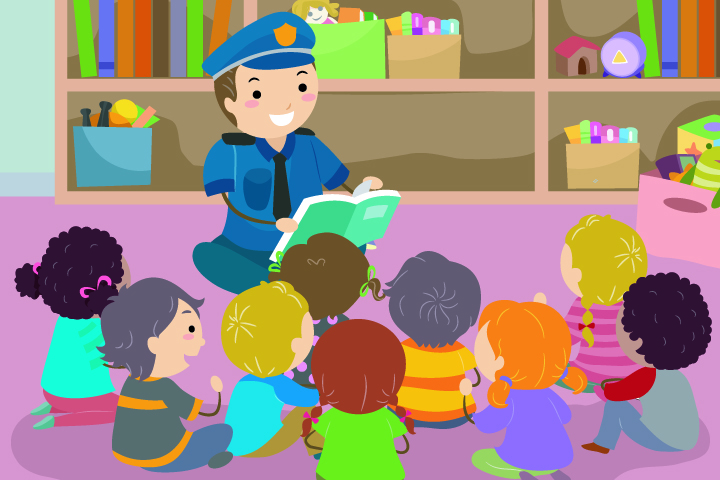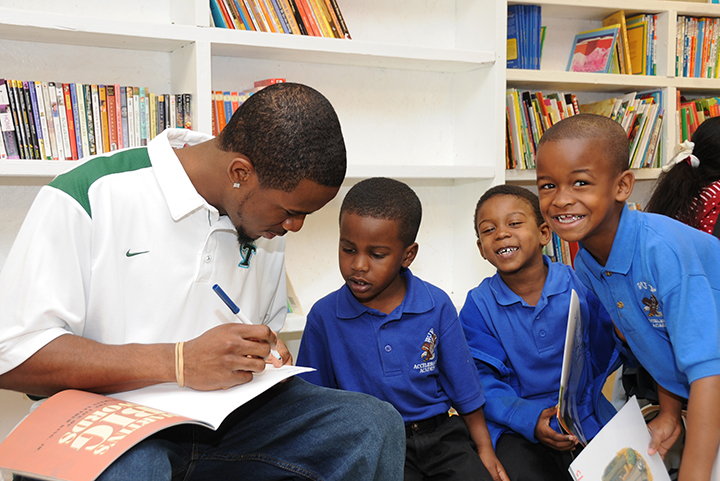Students at Canandaigua Primary-Elementary School in upstate New York are learning about honesty from community leaders, with a little help from popular children’s books.
Board of education president Jeanie Grimm recently stopped by Cathy Payne’s 2nd-grade class to read Mr. Peabody’s Apples, a children’s novel by Madonna that focuses on the harm of spreading rumors.
“A lot of stuff in this book reminds me of Canandaigua,” Grimm told the Daily Messenger. “There’s a building with a clock on it, just like we have in Canandaigua. A lot of apple trees grow in Canandaigua.”
Deputy Patrick Fitzgerald also visited students in February to read a story and relate how honesty plays into his work as a police officer.
The focus on honesty is the school’s theme for February, and part of a broader character education initiative for local elementary students. The program is designed to highlight six important character traits—honesty, integrity, civility, responsibility, respect, and kindness—by establishing the basic concepts in lower grades and delving deeper into the topics as students mature.
The new approach stems from the district’s Character Education Committee, which suggested educators narrow character education to focus on specific traits and provided educators with a wealth of resources to draw from, according to the news site.
And Payne believes students are catching on as they relate the stories on character to their own lives.
“They’re using the words,” she said. “I’ll hear things like ‘Mrs. Payne, I did a random act of kindness for my mom or my sister.’”
Students’ positive response echoes findings from the Institute for Advanced Studies in Culture’s School Cultures and Student Formation Project, which examined character formation in a wide variety of American schools.
In a summary of the research, The Content of Their Character, editors James Davison Hunter and Ryan S. Olson explain, “The presence of texts, traditions, and exemplars as sources for framing the moral culture of the school certainly create conditions conducive for explanation and illumination.”
At Canandaigua Primary-Elementary School, the pairing of literature and explicit instruction are helping students catch on to what is expected of them. School officials are also incorporating ways to honor students who demonstrate good character.
“Students across the building are being recognized for displaying good character with positive office referrals. We have posted several pictures to our Twitter account,” assistant principal Martha End told the Daily Messenger.
“When students receive a positive office referral, they come down to their grade level office and we celebrate them for a few minutes. Student pictures are then displayed on our Character Counts board.”
Administrators call parents to share the good news, as well. “They are so proud,” said another assistant principal, Emily Tatar. “We also celebrate our students with Braves of the Month. Each teacher selects two students to be celebrated, and we hang up their picture outside of the office to recognize them.”
Educators interested in forming strong character in students can find resources at the Jubilee Centre for Character and Virtues, including a school ethos self-evaluation framework to identify strengths and weaknesses in school culture.





